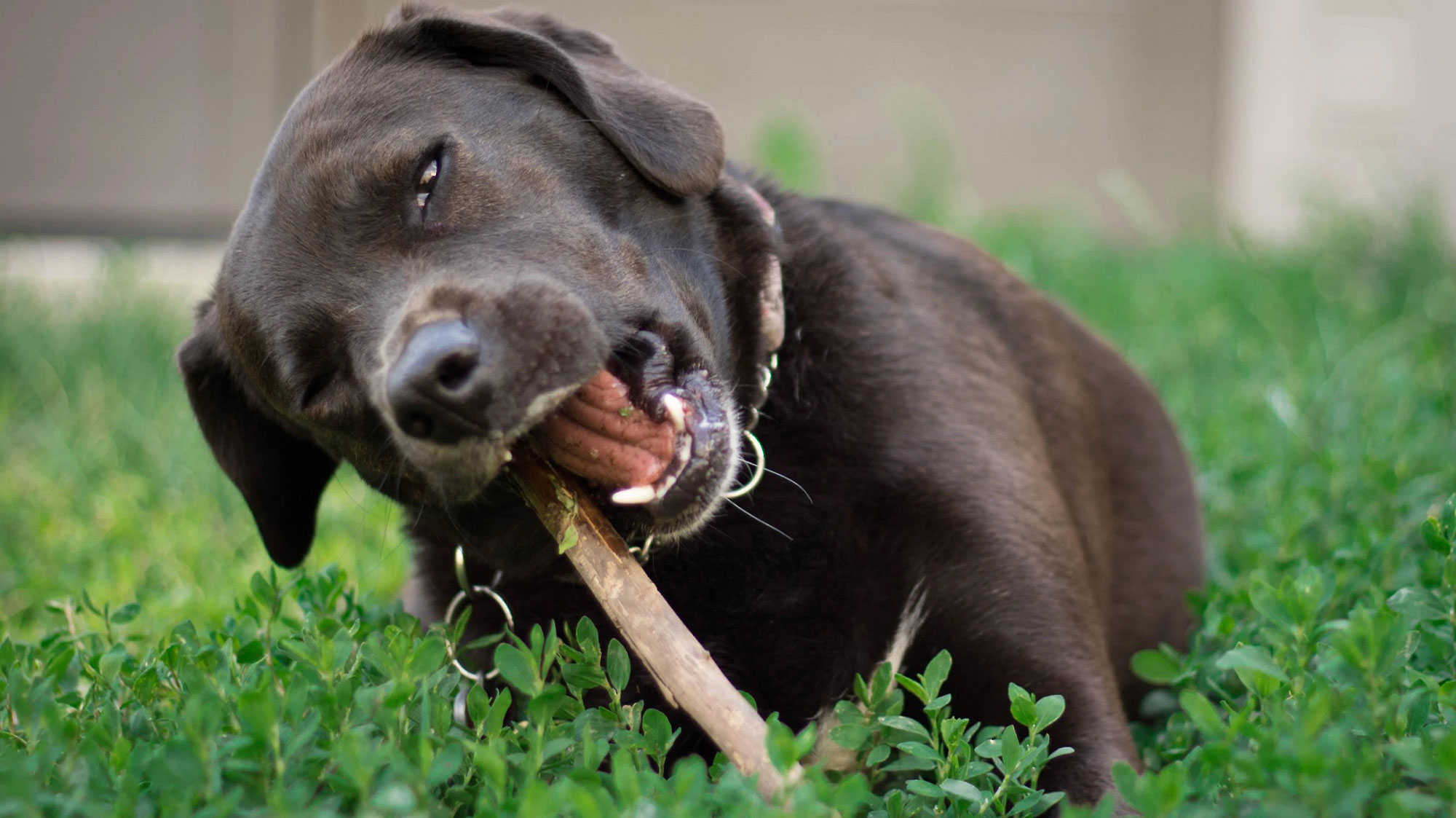Congratulations on your new puppy! Although cute, you have most likely noticed how much they like to chew. This is a frustrating yet inevitable part of puppyhood, and it is never fun to discover your favourite shoes have been shredded by your new companion. With these tips, you can avoid that unwanted destruction while still allowing your puppy to experience a natural part of being a dog.
Puppies don’t chew to be naughty, they actually NEED to chew.
Much like a human baby needs to teeth, puppies have new teeth coming in and chewing helps them develop a strong set of chompers. Management is extremely important because everything is a potential chew toy when the desire to chew is so strong. Keep your pup in a penned area with items you don’t mind them chewing, such as bones, teething biscuits or chew toys. If you use a toy, make sure it is not made of a brittle material that could break off and lodge in your puppy’s mouth or stomach!

How to set them up for success:
Whenever your puppy is out of their playpen, pick up everything you do not wish to have destroyed, such as shoes, children’s toys, remote controls, etc. They will not know the difference between the items you covet and those that have been purposefully given to them to chew. In fact, they will be drawn to just about everything—especially items that have their human’s scent on them.
Keeping your puppy in their playpen will not only prevent them from chewing your furniture, it will help their toileting routine develop while you manage their forays into the yard for peeing, rather than on your carpets!
Never give your pup old shoes or clothing items to chew, as they will not be able to distinguish between those and the newer ones you still love and wear.
If you catch them eyeing or starting to gnaw something off-limits like a table leg, utter a growl and clap your hands loudly. Praise them when they look at you. You can also spray a safe deterrent (such as bitter apple) on any tempting furniture to create a poor-tasting chewing experience for your pup.
Never physically correct your puppy for chewing, and never correct them after the fact. That can create even more issues, as they can become fearful of hands and of people approaching them.
Once your pup’s adult teeth have come in, continue to provide healthy, safe chewing items throughout their life. That will ensure their teeth and gums stay healthy, and keep them active and stimulated while they are alone!
Find a Trainer
Want to learn more, or begin training? We can help, let us find the trainer nearest you so that you can reach out to them directly.



